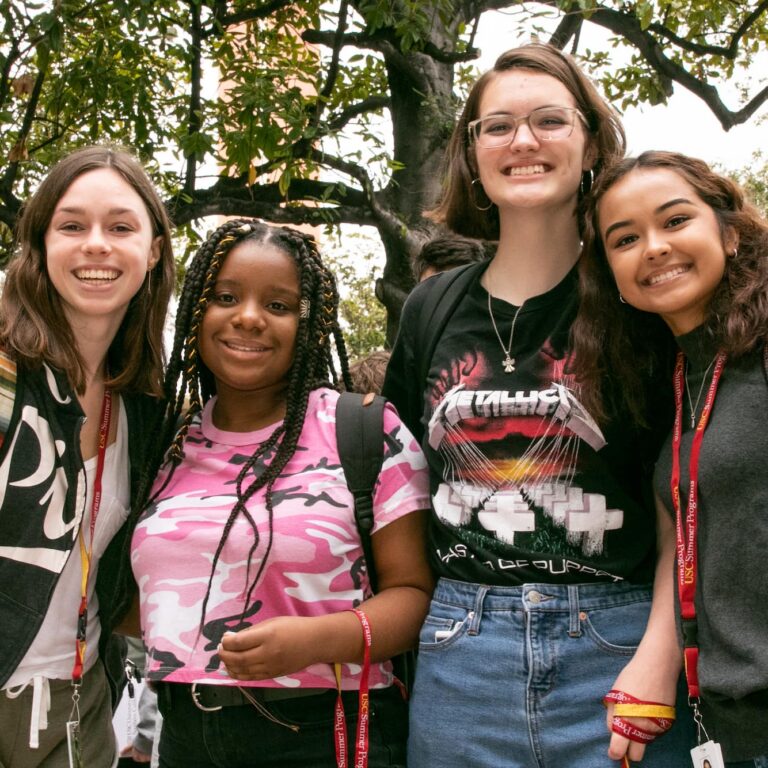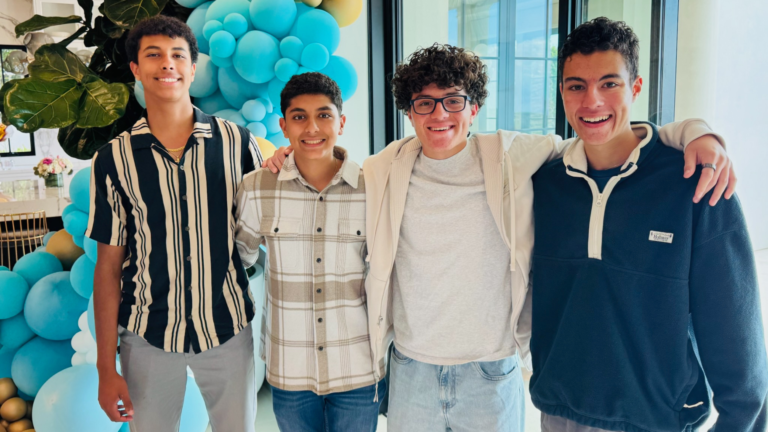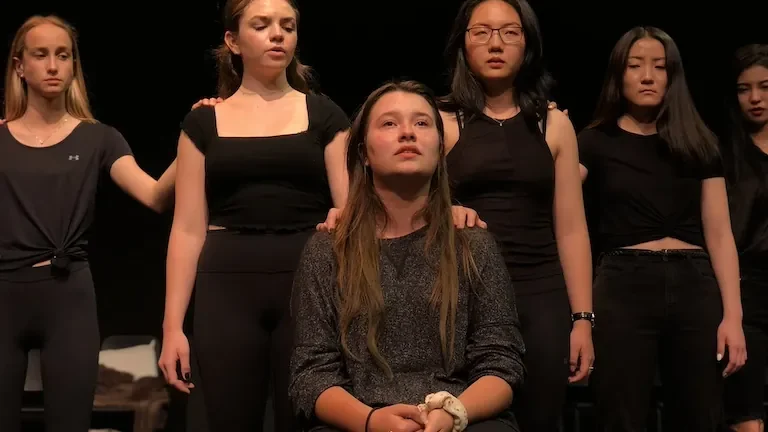
A rain-soaked sign on a university campus points to the admissions office. Here’s how to ace your college admissions interview. (Photo: iStock)
How to Ace Your College Admissions Interview
If your dream school offers an admissions interview, it’s the perfect opportunity to demonstrate your personality, passion and drive.
There are many steps in the college admissions process, including searching for schools to apply to, filling out applications, compiling letters of recommendation and writing an essay. But some students have an extra step that can feel particularly scary: the college admissions interview.
This interview gives prospective students an opportunity to talk directly to university faculty and make their case for why they belong at the school. The good news is, admissions interviews don’t have to be nerve-wracking! Here’s everything you need to know about the process — and how to ace your college admissions interview.
What Is a College Admissions Interview?
A college admissions interview is part of the admissions process, where an applicant speaks directly with faculty at the university. The purpose is twofold — and it benefits both the prospective student and the school.
“The college admissions interview is another opportunity for students to showcase who they are beyond grades and test scores,” said Dan Phan, academic program manager for USC Bovard Scholars. “While the purpose of the interview can be evaluative, it’s also a chance to engage in dialogue with an admissions representative or alumni volunteer to learn more about the college.”
Sometimes, applicants speak with just one person at the school. Other times, they’re interviewed by a whole panel of interviewers including admissions representatives, deans, professors or even current students. These interviews are usually in-person, although many schools now offer virtual options as well. They typically last anywhere from 30 minutes to an hour, depending on how many interviewers are involved.
Do All Colleges Require Admissions Interviews?
Not all schools require an interview for students to be admitted. Even if they do, the interview is typically optional. Larger public schools generally don’t do interviews — this makes sense as they admit a greater number of students — but smaller private schools are more likely to offer them, Phan said.
If it is a choice, a college admissions interview is worth considering — especially if the college recommends it. After all, an interview is a great way to demonstrate your interest in a school and stand out from the crowd. It can be helpful for interviewers to meet the real person behind the application.
If you’re interested in requesting an interview, look up how your school of choice handles them, as it varies by institution. This information should be available on the university’s website, although you can also call the admissions office for more information.
“Depending on the college, students can sign up for admissions interviews before they submit an application, like Claremont McKenna, Swarthmore and Washington University in St. Louis,” Phan said. “Other admissions interviews are by invitation only, and institutions will invite students to participate after they’ve submitted their applications.”
What Questions Are Asked in Admissions Interviews?
Of course, an admissions interview will only boost your application if you do well during this step! The best way to prepare beforehand is to rehearse answers to common college admissions interview questions. Phan said you’ll likely be asked the following:
- Tell me about yourself.
- Why did you apply to our school?
- What do you want to study and why?
- What are some of your most important high school experiences and why?
- What’s after college? Where do you see yourself in five year’s time? Ten years?
- What questions do you have for me?
While these are the basics, you can also expect questions that show your problem-solving skills, critical thinking and personality. This could include prompts like, “Tell me about a time you handled an unexpected hurdle at school,” “What are your hobbies?” or “Describe a time you had to make a difficult decision.”
What to Ask in a College Admissions Interview
But the admissions interview isn’t just for the university’s benefit. It also helps you determine whether this school is the right place for you. That’s why it is important to ask questions of your own. This is your opportunity to learn more about campus culture, the institution’s values and what separates it from other universities.
“Students should prepare three to four questions that cannot be answered simply by visiting the university website for the end of the interview,” Phan said.
Asking questions of your own can also boost your acceptance chances. It shows you’re truly interested in the school and highlights your passions, as well.
“For instance, prefacing a question with a personal interest or background can make the inquiry more meaningful and engaging,” Phan said. “For example, ‘I’m really interested in the intersection of ___ and ___. What are some ways I can get involved in academic research as an undergraduate student to further explore this?’ or ‘As a first-generation, low-income college student, I value mentorship and academic support. Are there any programs or resources available for students like me to connect with mentors — whether faculty, alumni or peers — who can offer guidance and share their experiences?’”
You should also tailor your questions based on who you are speaking with. If you’re conversing with faculty, they will be able to tell you more about the academic side and the school itself. With current students or alumni, you can ask about their personal experiences at the school to get a sense of whether it’s a place you would enjoy.
How to Prepare for an Admissions Interview
Before the day of the interview, you will need to research the school. If you’re knowledgeable and enthusiastic about the institution, your interviewers will know you really care about getting in. You should also come up with answers to common interview questions, questions you’d like to ask them and a general elevator pitch about yourself.
“If you’re meeting a stranger for the first time, what five things would you share with them so they can get to know you better?” Phan said. “Try to weave those five bullet points — accomplishments, unique experiences, values and aspirations — into your conversations. You want to leave an interview feeling good about having shared the things you’re most proud of and provide context into who you are.”
One of the best ways to prepare is by doing a practice interview with a family member, teacher or guidance counselor. They can provide valuable feedback on your answers, body language, eye contact and conversational flow.
If your interview is in-person, make sure to pick a professional outfit and gather all the things you’ll need to bring, such as portfolios, resumes or other supporting documents. If the interview is virtual, you’ll want to test out your tech beforehand to make sure everything is working properly.
Keep in mind the interview isn’t over when the conversation ends! It’s important to send a thank-you note to everyone you spoke with expressing gratitude and reiterating your interest in the school. It’s a polite and professional move and will reinforce a positive impression.
But, ultimately, it’s important not to stress too much about the interview, Phan said. It is just one of many steps in the admissions process.
“Students should remember that the college admissions interviews will not make or break an application since there are so many other components to the college admissions process,” Phan said.
Learn more about USC Pre-College Programs today.



